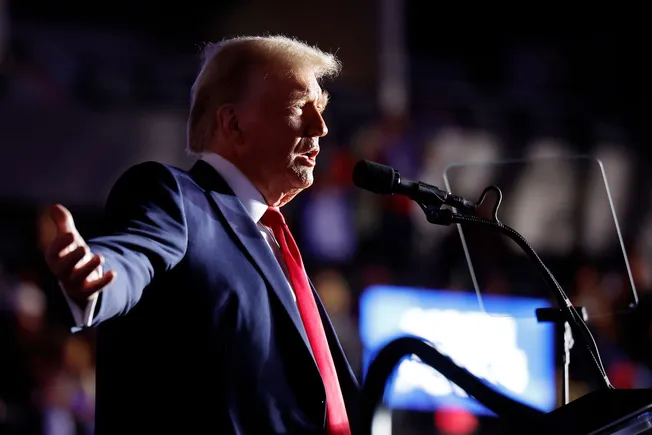Donald Trump plans to use an executive order to levy a 25% tariff on imports from Canada and Mexico on day one in office, the president-elect posted on Truth Social on Monday.
These new threats also include a promised additional 10% tariff on goods from China and build on Trump’s campaign promises to impose aggressive tariffs to entice companies to establish production hubs in the U.S. The Biden administration finalized tariff hikes on some China-made goods in September.
In the leadup to the Nov. 5 election, Trump consistently said he would raise tariffs on China-made goods to 60% while implementing an up to 20% tariff on imports generally.
The moves could put the country back on a path towards the trade war it waged during Trump’s first presidency, when the president imposed tariffs on goods from multiple countries, including Canada, Mexico and China.
Also at stake as Trump reenters office is the United States-Mexico-Canada Agreement. The 2018 trade deal put a halt to tensions between the North American countries, but the agreement is up for review in 2026.
“If President Trump proceeds with imposing immediate and unilateral tariffs, it could escalate tensions and effectively ‘go nuclear’ on USMCA,” Alberto Villareal, managing director of business consulting firm Nepanoa, wrote in a LinkedIn post Monday. “In response, Mexico and Canada might retaliate with tariffs on U.S. exports before revisiting the agreement.”
Retaliatory tariffs from Mexico and Canada would impact goods such as produce and chemicals, according to Villareal.
Increased tariffs could also harm U.S. retailers, manufacturers and consumers.
Even prior to Trump’s Monday announcement, new tariffs were projected to increase inflation and cost American shoppers up to $78 billion in spending power each year, per the National Retail Federation. Tariff hikes would also be “devastating” for manufacturers that import foreign components, according to Sanjay Patnaik, a senior fellow at the Brookings Institution.
Furthermore, tariffs could push companies to create standalone supply chains to export to the U.S., Mary Lovely, an Anthony M. Solomon senior fellow at the Peterson Institute for International Economics, said during a Nov. 20 press briefing with the Port of Los Angeles.
With less than two months before Trump retakes office, companies are already preparing for increased duties. Some, like Williams-Sonoma, Steve Madden and Ralph Lauren, are proactively reducing their sourcing from China, while others like Honda and Traeger are shifting their production strategies.
Correction: This article was updated to reflect the election was on Nov. 5, and to add further context on how the news builds on existing tariff rates.

